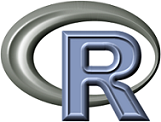last updated:
December 20, 2011



COSC 6335: Data Mining in Fall 2011
(Dr. Eick )



Goals of the Data Mining Course
Data mining centers on finding valid, novel, interesting, and potentially useful patterns in data.
It aims at transforming a large amount of data into a well of knowledge. Data mining
has become a very important field in industry as
well as academia. For example, almost 800 papers were submitted
for the IEEE International Conference
on Data Mining (ICDM) which will be held in Vancouver, Canada in
December 2011. Data mining tools and
suites (for example, see KDnuggets' DM Software
Survey) are used a lot in industry and
in reseach projects.
UH's Data Mining and
Machine Learning Group Website (UH-DMML) conducts research in some of the
areas that are covered by this
course (UH-DMML
Research Overview). Finally, having
basic knowledge in data mining is a plus when you are looking for a job in
industry and at major US research
institutions, such as the Texas Medical Center in Houston or at Federal Research Labs.
The course covers the most important
data mining techniques and provides background knowledge on how to conduct a
data mining project. In the first 9
weeks a very basic introduction to data mining will be given. After defining
what knowledge discovery and
data mining is, data mining tasks such classfication, clustering, and association analysis will be discussed in
detail. Moreover, techniques how to preprocess a data set for a data mining
task will be covered. Also basic
visualization techniques and statistical methods will be introduced.
In the remaining 4 weeks of the semester, more advanced topics including spatial data mining, advanced clustering and classification
techniques, and sequence mining and webpage ranking will be discussed. Moreover,in course project you will obtain hands on experience in conducting data mining project; moreover,
as R will be
used in most course projects, you will obtain
valuable exprience in using the R statistics, data mining, and visualization
open source software. Moreover, 2-3 labs will assist you in learning how to
use and program in R.
A recent poll at KDnuggets found that 34% of respondents do at least half of
their data mining in R. Although it's a domain specific language, it's
versatile.
Comments concerning this website
If you have any comments
concerning this website, send e-mail
to: ceick@cs.uh.edu
Basic Course Information
Instructor: Dr.
Christoph F. Eick
office hours (589 PGH): TU 1:30-2:30p and TH 11:30a-12:30p
e-mail: ceick@uh.edu
Teaching Assistant: Zechun Cao
office hours: MO 2:30-3:30p TH noon-1:30p in 313 PGH
Zechun's COSC 6335
Website
email:
class meets: TU/TH 10-11:30a
cancelled classes: Th., November 3
Makeup classes: Tu., December 6, 10-noon
class room: 301 AH
exam classroom: FH 135 (October 25 and December 6, 2011)
Course Materials
2011 COSC 6335 Syllabus
Required Text:
- P.-N. Tang, M. Steinback, and V. Kumar: Introduction to Data Mining,
- Addison Wesley,
- Link to
Book HomePage
Recommended Texts:
- Jiawei Han and Micheline Kamber, Data Mining: Concepts and
Techniques
- Morgan Kaufman Publishers, Third Edition (just came out a few months
ago).
- Link to Data Mining Book Home
Page
NIST/SEMATECH e-Handbook of Statistical Methods (good onlne source covering
exploratory data analysis, statistics, modelling and prediction)
 News COSC 6335 (Data Mining) Fall 2011
News COSC 6335 (Data Mining) Fall 2011

- The data mining letter grades will be available on December 18 and
more detailed grade reports will be posted on
Zechun's website no later than December 23, 2011. I enjoyed teaching the
course and look forward to seeing some of you in 2012.
- The final exam will not be
returned to students; however, you can see your final exam at the following
dates: Thursday, January 12, 10-11a, Thursday, January 19, 2:30-3:30p,
Tuesday, January 24, 10-11a.
- The slides of the Project4 student presentations have been posted and the
video can also be seen (the lighting is not great but the audio if fine; I
believe it
is still useful to look at your and other presentations)
- 2011 Textbook Reading Assignments:
August 25: 1-11; August 29: 19-36;
August 31: 97-131;
September 8: 65-84; September 13: 487-496; September 15: 496-508; September
19: 510-515; September 20: 526-532; September 24: 569-576;
September 28: 327-335; October 3: 335-351; October 6: 145-162;
October 10: 162-166, 168-178 and 184-188, October 17: read matrial using
the web links on the "Short Introduction to Spatial Data Mining" lecture;
October 31: 44-64;
November 8: 223-226, 256-281; November 10: 131-139; November 14: 515-526,
532-553; November 20: 415-423, 426-441; November 28: Read discussions about K-means, kNN, decision trees, and
APRIORI of the "Top 10 Data Mining Algorithms Paper".
- Programming projects (unless specified otherwise) and other assignment
tasks are individual activities; therefore, collaborating with other students
is not allowed (also see academic honesty section near the end of
this webpage).
Important Dates in 2011
Tu., August 30: Chun-sheng Chen will teach this lecture
Th., September 1, 2011: Lab-style R-Tutorial Part I, bring your labtops and
have R installed
Th., September 22, 2011: R Tutial Part2 centering on clustering
Tu., October 25: Midterm exam 10-11:15a in FH 135
Th., October 27: Likely, Guest Lecturer and 45-minute lab that day.
Th, November 3: No lecture that day.
Th., November 17: "Something Interesting About Finding Something
Interesting" Student Presentations in 563 PGH (Project4)
Tu., December 6: Final exam 10-11:40a in FH 135 (makeup class for
cancelled class on November 3)
2011 Review Session Dates (last 30 minutes of lecture): October 4, October 20,
November 22, December 1.
2011 Projects
Project1: Explaratory Data Analysis for
the Vehicle Silhouette Dataset using R.
Project2: Clustering with K-means and DBSCAN
Project 3: Extracting Regional
Knowledge from Spatial Datasets: Clustering with Plug-in
Interestingness Functions with CLEVER
Project 4: Something Interesting About
Finding Something Interesting (Group Project;
Slides Project4 Student Presentations,
Video taken of the Event)
Project 5: Learning and Assessing
Classification Models
Prerequisites
The course is mostly self-contained. However, students taking the course
should have
sound software development skills and very basic knowledge of Java.
Course Elements and Their Tentative Weights in 2011
Course Projects (5): 40%
Exams (2): 59% (midterm: 26%; final exam: 33%)
Class Attendance: 1%
COSC 6335: Data Mining Lecture Notes
I Introduction to Data Mining (Part1, Part2,
Part3,
Differences
between Clustering and Classification --- covers chapter 1 and Section 2.1)
II Exploratory Data Analysis (covers chapter 3 in part; see also Interpreting Displays)
III Introduction to Classification: Basic Concepts and
Decision Trees
IV Introduction to Similarity Assessment
and Clustering (AGNES and DBSCAN)
V Association Analysis(Part1,Part2)
VI A Short Introduction to Data Cubes
VII Preprocessing for Data Mining
VIII Introduction to Spatial Data Mining
(Introduction to Regional Knowledge Extraction,
Intoduction to Region Discovery,
Example Fitness Functions (to
be used in the Region Discovery Lecture), Introduction
to the CLEVER Region Discovery Algorithm,
Dr. Eick's Report 2011 ACM-GIS Conference,
Spatial Regression(not covered
in 2011))
IX More on Clustering and Outlier Detection: Grid-based,
Density-based Clustering, and Subspace Clustering,
Cluster Validity,
Anomaly/Outlier Detection.
X DM Labs: Introduction to R and Course Projects (for teaching material see
Zechun's website who teaches the labs)
XI More on Classification: Instance-based Learning, Support Vector Machines,
Editing, Ensembles, ROC-Curves
(NN-Classifiers and Support Vector Machines,
Editing and Condensing Techniques for NN-Classifiers
(not covered in Fall 2011), Ensembles and ROC Curves,
Model Evaluation).
XII Top Ten Algorithms in Data Mining
(Top-10 Panel, Top10)
XIII Miscellaneous: Experiences in Finding
Data Mining/Internet/HPC Jobs in Industry,
2009 Netflix Contest,
90 Days at Yahoo! and Final Words
Order of Teaching in 2011:
I-II-IV-V(Part1)-III-VIII-VI-VII-XI(only covering kNN, support vector
machines, and briefly ensembles)-IX(only covering
hierarchical clustering and cluster validity in 2011)-
V(Part2)-XII-XIII.
Remarks: X will be covered in 3 computer labs (see schedule above); likely,
XIII, will be only partially covered.
2011 Review Sessions
The review sessions will discuss questions which typically will be posted
2-7 days prior to the review session; review sections will take about 30 minutes
and are typically discussed 10:45-11:15a. It is important that
you try to answer the review questions before
the review session
2011 Review Questions
Questions October 4
Questions October 20
Questions November 22
Questions December 1
2011 "Something Interesting About Finding Something
Interesting" Groups
Group1
Amalaman,Paul Koutoua
Joshi,Sushil
Kampalli Santhamurthy,Divya Durga
Group2
Anurag,Ananya
Dotson Jr,Ulysses Sidney
Edamalapati,Raghavendra Rao
Francis Xavier,John Brentan
Group3
Arun,Balakrishna Sarathy
Asodekar,Pallavi
Chilukuri,Brundavani
Nalan Chakravarthy,Vidya Thirumalai
Group4
Chohan,Gaurav
Veerappan,Vaduganathan
Wang,Ning
Wen,Xi
Group5:
Conjeepuramkrishnamoorthy,Manasee
Gondu,Ananth Kumar
Hernandez Herrera,Paul
Kao,Hsu-Wan
Group6:
Kethamakka,Uma Shankar Koushik
Komma,Gayathri
Xi,Chen
Zhu,Rui
Group7:
Marathe,Deepti A
Mauricio,Aura Elvira
Souran,Malvika
Vanegas,Carlos R
Group8:
Mohanam,Naveen
Nyshadham,Harshanand
Poolla,Veda Shruthi
Siga,Dedeepya
A Few Results 2011 DM Questionnaire
Student Preferences: Of a group of 31 students (neutral statements
were not counted),
26 students like group projects and 3 students dislike group projects;
25 students like reading scientific papers and 4 students dislike reading
scientific papers; 23 students like projects which involve a significant
amout of
programmming and 6 students dislike such projects; 17 students like to give presentations and 5 students dislike giving presentations.
Student Languages: As far as languages are concerned which
students spoke as a child are concerned (based on 29 responses; if students
listed more than 2 languages only the first two languages
were counted): English(16), Telugu(6), Hindi(6), Chinese(5), Tamil(5),
Spanish(3), African(1), French(1), Nepali(1), Marathi(1), Kannada(1).
2010 Assignments
Assignment1 (see Chun-sheng's Website)
Assignment 2
Assignment3
(Earthquake 2010 Dataset)
Assignment4
First Draft of Assigment 5
2010 Review Sessions
There will be 30 minute review sessions on September 23,
October 12, November 16, and November 30. Review questions will be
posted here. Occasionally, review questions will discuss paper-and-pencil
problems of assignments.
Review Questions for September 23
Review Questions for October 12
Review Questions for November 11
Review Questions for November 30
Grading
Each student has to
have a weighted average of 74.0 or higher in the
exams of the course in order to receive a grade of "B-" or better
for the course.
Students will be responsible for material covered in the
lectures and assigned in the readings. All assignment and
project reports are due at the date specified.
No late submissions
will be accepted after
the due date. This policy will be strictly enforced.
Seveal times during the semester I will check class attendance at randomly
chosen dates, and an attendence score will be computed from how many
of the those lectures you attended.
Translation number to letter grades:
A:100-90 A-:90-86 B+:86-82 B:82-77 B-:77-74 C+:74-70
C: 70-66 C-:66-62 D+:62-58 D:58-54 D-:54-50 F: 50-0
Only machine written solutions
are accepted (the only exception to this point are figures and complex formulas) in the assignments.
Be aware of the fact that our
only source of information is what you have turned in. If we are not capable to understand your
solution, you will receive a low score.
Moreover, students should not throw away returned assignments or tests.
Students may discuss course material and homeworks, but must take special
care to discern the difference between collaborating in order to increase
understanding of course materials and collaborating on the homework /
course project
itself. We encourage students to help each other understand course
material to clarify the meaning of homework problems or to discuss
problem-solving strategies, but it is not permissible for one
student to help or be helped by another student in working through
assignment problems and in the course project. If, in discussing course materials and problems,
students believe that their like-mindedness from such discussions could be
construed as collaboration on their assignments, students must cite each
other, briefly explaining the extent of their collaboration. Any
assistance that is not given proper citation may be considered a violation
of the Honor Code, and might result in obtaining a grade of F
in the course, and in further prosecution.
Past Data Mining Exams
2008 Midterm Exam
2007 Final Exam
2009 Midterm Exam with Solution Sketches
2009 Final Exam with Solution Sketches
2010 Midterm Exam with Solution Sketches
2011 Midterm Exam with Solution Sketches (some
typos in the solution of Problem 5b have been corrected on
November 29, 2011)
2010 Final Exam with Solution Sketches
Summary Answers COSC 6335 2009 Student Questionnaire
Student Language Summary Registered
Students: English:14, Hindi:9, Telugu:7, Bengali:2,
Vietnamese:2, Arabic:2, Sindhi:1,
French:1, Russian:1, Turkish:1, Kyrgyz(?):1, Tamil:1, Filipino:1, Spanish:1,
Urdu:1, Garhwali(?):1, Chinese:1; I am impressed: some of you spoke up to
four languages as a child! Concerning group projects, 11 students
liked group projects, 2 students disliked group project, and 9 students
had no preference. Concerning reading scientific papers 12 students liked
reading scientific papers, 3 students disliked it, and the rest of the students
were neutral or gave fuzzy answers "I like reading paper that are interesting.".
15 students like giving presentations and 4 students didn't. Concerning
projects that involve significant amounts of programming 16 liked it and
3 didn'tlike it.
Master Thesis and Dissertation Research in Data Mining
If you plan to perform a dissertation or Master thesis project in the area of
data mining, I strongly recommend
to take the "Data Mining" course; moreover, I also suggest to take at least one, preferably two, of the following
courses: Pattern Classification (COSC 6343), Artificial
Intelligence (COSC 6368) or Machine Learning (COSC 6342). Furthermore, knowing
about evolutionary computing (COSC 6367) will be helpful, particularly
for designing novel data mining algorithms.
Moreover, having basic knowledge in data structures, software design, and
databases is important when conducting
data mining projects; therefore, taking COSC 6320, COSC 6318 or COSC 6340 is a also good choice.
Moreover, taking a course that teaches high preformance computing is also
desirable, because most data mining algorithms are very resource intensive.
Finally, having some knowledge
in the following fields is a plus: numerical optimization techniques, image
processing, statistics, geographical information systems (GIS), agent-based
systems and data visualization.
Also be aware of the fact that having sufficient background in the above
listed areas is a prerequisite for consideration for a thesis or dissertation project in the area of data mining. I will not serve as your MS thesis or dissertation advisor, if you have do not have basic knowledge
in data mining, machine learning, statistics and related areas. Similarly, you
will not be hired as a RA for a
data mining project without having some background in data mining.
Data Mining Links
 KDnuggets
KDnuggets
Rexer Analytics: Data Mining Software Survey
Netflix $1,000,000 Grand Prize
2011 IEEE International
Conference on Data Mining (ICDM), Vancouver, Canada, December 2011.
2011 ACM
KDD Conference, San Diego, California, August 2011.
UIUC Data Mining Group
Microsoft DMX Group
UMN Spatial Database and Spatial Data Mining Group
Data Mining and Machine Learning Group University
of Helsinki
R User
Groups
UH's Data Mining and Machine Learning Group (UH-DMML)
RapidMiner (formerly Yale)












 News COSC 6335 (Data Mining) Fall 2011
News COSC 6335 (Data Mining) Fall 2011

 KDnuggets
KDnuggets